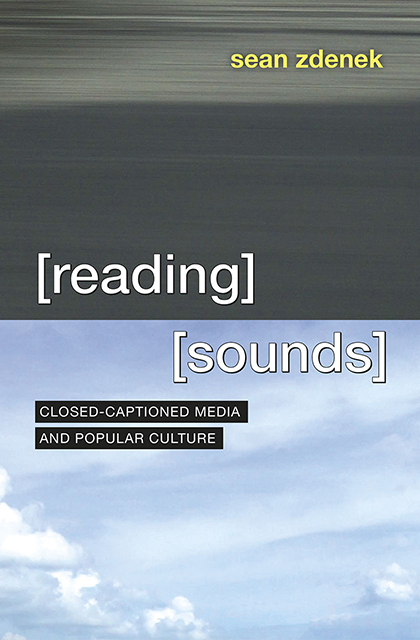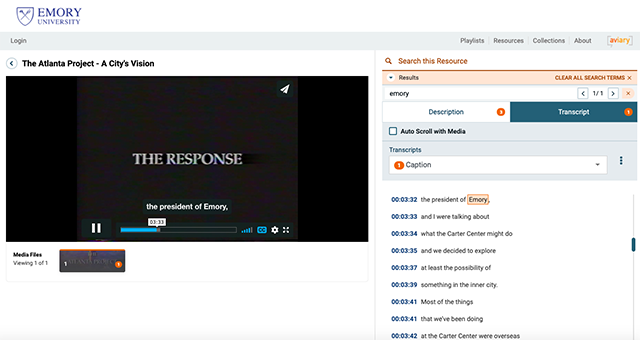This Sunday, July 26, 2020, marks the 30th anniversary of the signing of the Americans with Disabilities Act (ADA), a landmark piece of legislation which protected the rights of people with disabilities. The ADA was the culmination of decades of activism and resulted in unprecedented opportunities for people with disabilities. Accordingly, July 26 is celebrated in the disability community in the United States as “Disability Independence Day,” and the whole month of July is celebrated as “Disability Pride Month.”
If, like many Americans, you don’t know much about the ADA or the Disability Rights Movement, this weekend is as good a time as any to start learning, and the resources listed at the end of this post provide some places to begin.
While enormous strides have been made towards the inclusion of people with disabilities over these past 30 years, much remains to be done to ensure accessibility in workplaces, schools, and businesses, including here at Emory. And the work of making Emory more accessible cannot merely be a job for our Department of Accessibility Services but must be a goal that we all strive for in our work. In particular, we in LITS have the responsibility to help make the digital aspects of Emory that we help build and maintain accessible to all members of our community, including those with disabilities.
 With the aim of spurring larger conversations about accessibility both within LITS and across the university, in 2018 the Emory Center for Digital Scholarship (ECDS) joined with Emory’s Disability Studies Initiative, and the Digital Publishing in the Humanities Program at the Fox Center for Humanistic Inquiry to begin an annual “Conversations in Digital Accessibilities” series, which has brought in experts on accessibility and technology from across the nation to expand our understanding of this evolving topic.
With the aim of spurring larger conversations about accessibility both within LITS and across the university, in 2018 the Emory Center for Digital Scholarship (ECDS) joined with Emory’s Disability Studies Initiative, and the Digital Publishing in the Humanities Program at the Fox Center for Humanistic Inquiry to begin an annual “Conversations in Digital Accessibilities” series, which has brought in experts on accessibility and technology from across the nation to expand our understanding of this evolving topic.
Just a few weeks before Emory went remote this past spring we hosted the most recent speaker in the series, Dr. Sean Zdenek, Associate Professor of Technical and Professional Writing at the University of Delaware, and author of Reading Sounds: Closed-Caption Media and Popular Culture (which all members of the Emory community have electronic access to here).
In his lecture “Access Remade: Designing, Disrupting and Transforming Inclusive Media,” Dr. Zdenek discussed how the important accessibility measure of captioning audiovisual media might be re-imagined and enhanced to more fully convey meaning and make the media as accessible as possible (a topic he also touches upon in his recent interactive article “Designing Captions: Disruptive experiments with typography, color, icons and effects”).
We at ECDS were particularly excited for Dr. Zdenek’s visit because captioning has been the focus of our own accessibility efforts over the past year and a half, during which time we have captioned approximately 26 hours of video. More recently, we have also piloted a new platform for use at Emory, Aviary, which demonstrates how making something more accessible for users with disabilities can also make it more valuable and usable for all.
Via Aviary you can search within videos that have captions (or within sets of videos) and find the specific moments when your search term is spoken. The searchability of videos by their content, and not merely their titles, is absolutely transformative. Additionally, Aviary enables videos published to separate YouTube and Vimeo channels by different units of a university to be gathered in a single place, thus allowing users to search and discover the wide range of content produced by an institution like Emory. You can explore the pilot Emory instance of Aviary and experience the exciting possibilities of increased video searchability for yourselves here: https://emory.aviaryplatform.com/.
And if you’d like to learn more about captioning and/or getting your unit’s videos added to the Emory instance, you can contact Adam P. Newman (adam [dot] p [dot] newman [at] emory [dot] edu) and Steve Bransford (steve [dot] bransford [at] emory [dot] edu).
Resources about the Disability Rights Movement and the ADA
- Crip Camp (documentary) https://www.netflix.com/title/81001496
- NY Times Series: The ADA at 30: Beyond the Law’s Promise https://www.nytimes.com/interactive/2020/us/disability-ADA-30-anniversary.html
- James Charlton Nothing about us without us disability oppression and empowerment
- Doris Zames Fleisher The Disability Rights Movement From Charity to Confrontation
- Joseph P. Shapiro No pity : people with disabilities forging a new civil rights movement
Resources from the Conversations in Digital Accessibilities series
- Captioned video of 2018 Lecture by Elizabeth Ellcessor, “Cultural Accessibility: Digital Media, Disability Cultures, and Academic Responsibility”: https://vimeo.com/showcase/5773756
- Elizabeth Ellcessor Restricted access : media, disability, and the politics of participation
- Stephanie S. Rosen Accessibility and Publishing
- Stephanie S. Rosen Describing Visual Resources Toolkit
- Sean Zdenek Reading Sounds: Closed-Caption Media and Popular Culture
- Sean Zdenek Designing Captions: Disruptive experiments with typography, color, icons and effects


